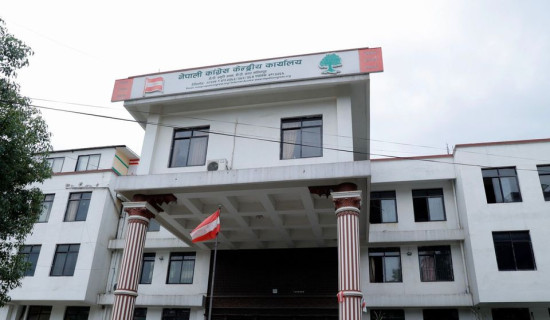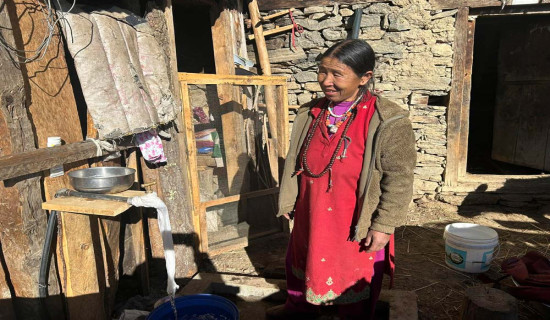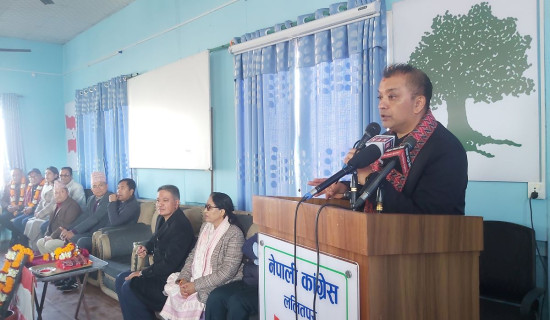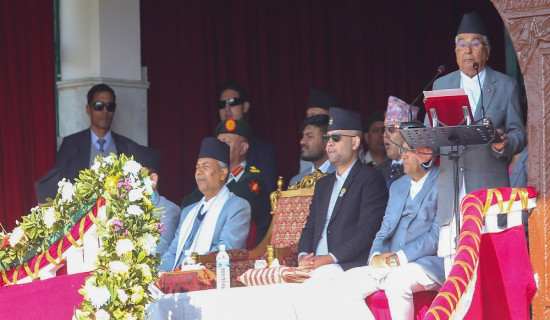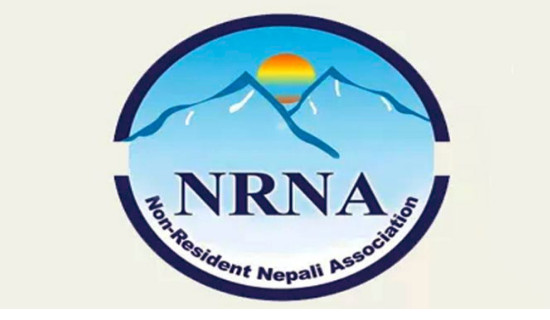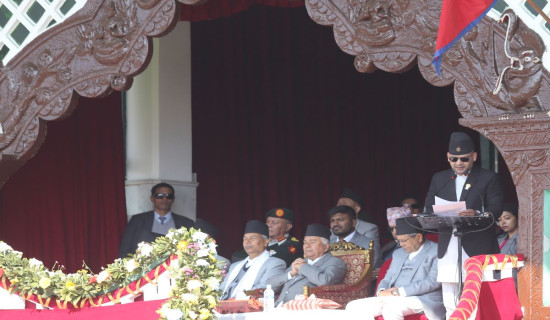- Monday, 15 December 2025
Time To Translate Words Into Action
Winston Churchill once said: “...democracy is the worst form of government – except for all the others that have been tried.” It is quite perplexing as to why Churchill made such a cynical remark about democracy so cherished notion of our time. Churchill was the popular wartime British Prime Minister who successfully steered the nation through war but his Conservative Party was badly defeated in the general election in 1945. Two years later, Churchill termed democracy the "worst form of government," perhaps after he was voted out of power.
That time Labour Party had secured resounding victory on a platform of progressive agenda - commitment to full employment, affordable housing, social security and health care for all. Ravaged by war, the British people wanted peace, stability, development and post-war reconstruction.
They might have thought the Labour party could rebuild the nation as the Conservatives had no much focus on reconstruction programme. They tried to cash in on Churchill’s popular appeal while campaigning for lowering tax, having strong defence budget and promoting private business interests.
Two-line of Thoughts
It is obvious that the Labour and Conservatives represent two strands of democracy and stand for the opposite set of ideas, values and programmes. In principle, the Labour stresses the greater role of government and the regulatory system to ensure the social justice and security for citizens. The Conservatives and rightist parties prefer minimal role in the state and let market forces decide the fate of society and the people. It is true that the Labour and Social Democratic Parties across Europe veered off their path and shed many of their "socialist" ideas over the decades. Similarly, the Conservatives turned neo-liberalist and market fundamentalist, promoting crass capitalism. These two-line of thoughts are embraced by most of the political parties operating under the multiparty system in different parts of the world.
As we set out to mark Democracy Day today, it is imperative to weigh in on these two separate political philosophies that determine the success or failure of democratic polity. In 1951, when democracy was first established, our leaders put emphasis on civil liberties and freedom. They wanted that the people’s right to express, walk and form an organisation without impediment must not be trampled.
The despotic Rana rulers have made the entire country a prison house, depriving the people of their basic rights. The primary goal of Saat Salko Kranti (revolution of 2007 BS) was to topple Rana regime and instal the multiparty democracy in which elected representatives form government and implement its policy.
The 1951 revolution laid the foundation of democracy and spread public awareness at unprecedented level. It was the first historic step to transform Nepalis from raitis (subjects) into people but it lasted only for a decade. It continues to show light to the Nepali people and democracy fighters in moment of darkest hours. It has inspired them to wage many democratic and social movements in subsequent years. Democracy, reinstated in 1990, had two pillars - multiparty system and constitutional monarchy - in addition to its vision of a welfare state enshrined in the new constitution.
The April Uprising that shook the nation in 2006 led to the abolition of the 240-year monarchical system, ushering in the republican, federal and secular system. The constitution, authored by members of Constituent Assembly in 2015, broadened the definition and scope of Nepali version of democracy. It has guaranteed 31 fundamental rights to the people. It has promoted inclusive democracy through a mixed electoral system that seeks to bring marginalised people into lawmaking legislative body. Nonetheless, it has made people aspiration-driven, with many rights but fewer duties. A weak economic base and political volatility has hindered in realising the lofty objectives of the constitution.
Despite scores of democratic movements and regime changes, many Nepalis have still been forced to live in a state of penury, with little or no access to quality health services, education, employment and social security – which form the basis to live a life of dignity and happiness. Democracy Day must joggle our political leaders as to where they missed the boat. The 1990 constitution envisioned creating a welfare state but successive governments adopted neo-liberalist policy in the contravention of the constitutional spirit, which eventually weakened the state’s capacity and efficiency to deliver goods and services to the people.
Like the Labour Party that built robust social security system in post-war Britain, the government, constituted after the People’s Movement of 1990, could seize on a historic opportunity to take the nation on the path of democratic nation-building and inclusive growth.
But its political and economic missteps pushed the nation into a series of intractable crises. It was lost in the maze of corporate-led globalisation. Even the governments, formed by the socialist or communist parties, also followed the similar policy and failed to correct the defective economic course.
Advanced form of democracy
It is a moment to reflect on and assess the pros and cons of our system. We have, at least in theory, advocated an advanced form of democracy – federal, republican and secular dispensation but the state is unable to deliver good governance, rule of law, stability and inclusive prosperity. We have the comprehensive constitution that offers principles and directives to make our democracy the best form of government, not what Churchill said.
The people of Greek city states voiced for democracy against aristocracy in 5th century BC. It was perhaps the first time that the idea of democracy was systematically raised in Western society. Democracy is the rule of the people. not the . .rule of the elite.’
But today Nepali democracy risks getting hijacked by new political elites who have emerged from political movements. Just by incorporating rosy words and tall promises in the constitution, democracy can’t be consolidated. Neither do the people enjoy its dividends. Political leadership must suit actions to words. For this, they must form and demonstrate their character and act accordingly.
(Author is Deputy Executive Editor of this daily.)









